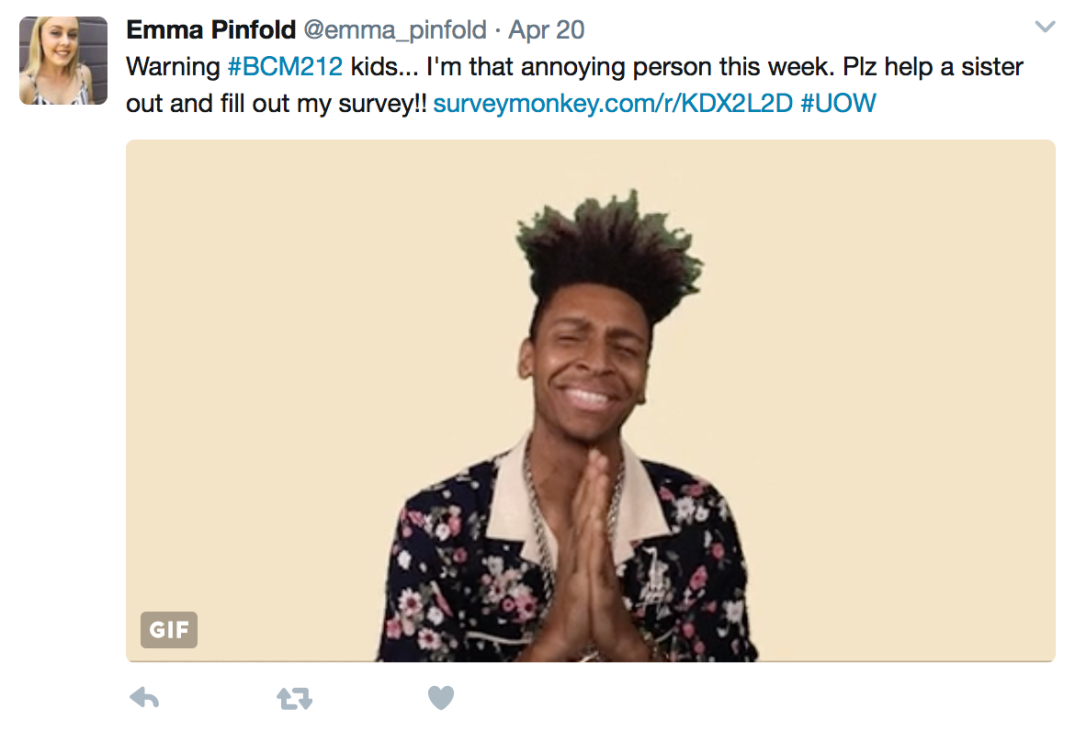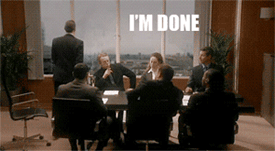“I’m a realist. Yes, taking a year off life meant my friends are now a year ahead of me at Uni, but I don’t see myself as having fallen behind. Experiences abroad have allowed me to grow so much as a person and have greatly broadened my perspective. I was exposed to such a range of experiences that I don’t care so much about the little things anymore. I think that although taking the initial leap is scary, if you always dream of it but never do it, you’ll regret it.”
– Interview Participant No.2
This post (yes, this one right here) marks the conclusion of my BCM212 project! As you (hopefully) already know, I have recently been undergoing a research project on ‘What prevents people from taking time off life in order to live to the fullest’
A key learning I take from this assignment: Never underestimate the importance of communicating with your audience and conducting ethical research techniques.
Through this assignment, I realised that just involving an audience wasn’t enough. These participants are stakeholders in my study!
As a result of this, I used my blog and Twitter account as a medium through which I could openly communicate with my participants. (What’s that? But how did my participants know to communicate with me this way?) GOOD QUESTION
Throw back to my questionnaire… before commencing questions, I stated that those who wish to keep updated can see updates at ‘THE PIN BOARD’ i.e. emmapinfold.wordpress.com or on my Twitter handle emma_pinfold.
In my secondary research, I ensured to read up on sources detailing ethical research practices. An example of this reading is the journal article ‘Conducting Respectful Research: A Critique of Practice’. This source acted as a Bible of sorts. A dictionary of all information surrounding ethical research techniques. The article discusses the importance of ethical research and the implications on both the researcher and the study if improper techniques are used.
In my research, I ensured that participants understood that their valuable opinions were being put to use and that their time was appreciated. In my research, I also made the decision to have all participants remain anonymous. Before participants began both methodologies (Questionnaire and Interview) I ensured to provide a disclaimer that their answers provided will be used in my report, however that their identity will at all times remain anonymous. This was vital in ensuring that I was an ethical researcher at all times.
I also found critical judgement to be of great importance in my study. I gained majority of my methodology information from secondary sources, so it was imperative that I used close critical judgement of the articles, to ensure that the information was reliable. This process was made easy by using the CRAAP test, as taught in BCM212. The CRAAP test was introduced to us as a means to test the credibility of a source. The CRAAP test investigates the article’s Currency, Relevance, Authority, Accuracy and Purpose. If a source met the CRAAP criteria, I rendered it reliable and found it usable in my research.
My research also exposed me to the importance of flexibility! Throughout the course of my study, I found it necessary to trim and change my question and my research techniques in order to reach the most succinct results possible.
The findings: Success or Failure?
I consider my findings to be a success!
As hoped, I was able to conclude all posed questions within my research project.
Overall, my research concluded that 88% of people (as assumed from a sample of 100 people) have experienced the urge to take time off life. Of these 88%, only 45% actually pursue this urge to take time off life. The remaining 55% do not act on the urge to take time off for many reasons.
My research concluded that people are prevented from taking time life to pursue personal goals because of three primary reasons:
- Commitments to work
- Commitments to education
- Lack of monetary resources
As stated in interview 1 however, those who experience the urge to take time off life but do not act on this urge know that they will regret not ‘taking the leap’ later in life.
Overall, this project has allowed me to grow both as a researcher and as a professional. Experience gained through conducting interviews and analysing findings has allowed me to expand my knowledge and widen my perspective to the concept of ‘taking time off life’.
Until next time, that’s this week Pinned.
Emma.
References:
Tilley. S, (1998) ‘Conducting Respectful Research: A Critique of Practice’ Canadian Journal of Education, Vol. 23, No. 3, pages. 316-328
Available at: http://www.jstor.org/stable/1585942?seq=1#page_scan_tab_contents
Accessed: 23/05/2017
California State University (2010) Evaluating Information Applying the CRAAP Test
Available at: http://www.csuchico.edu/lins/handouts/eval_websites.pdf
Accessed: 23/05/2017







